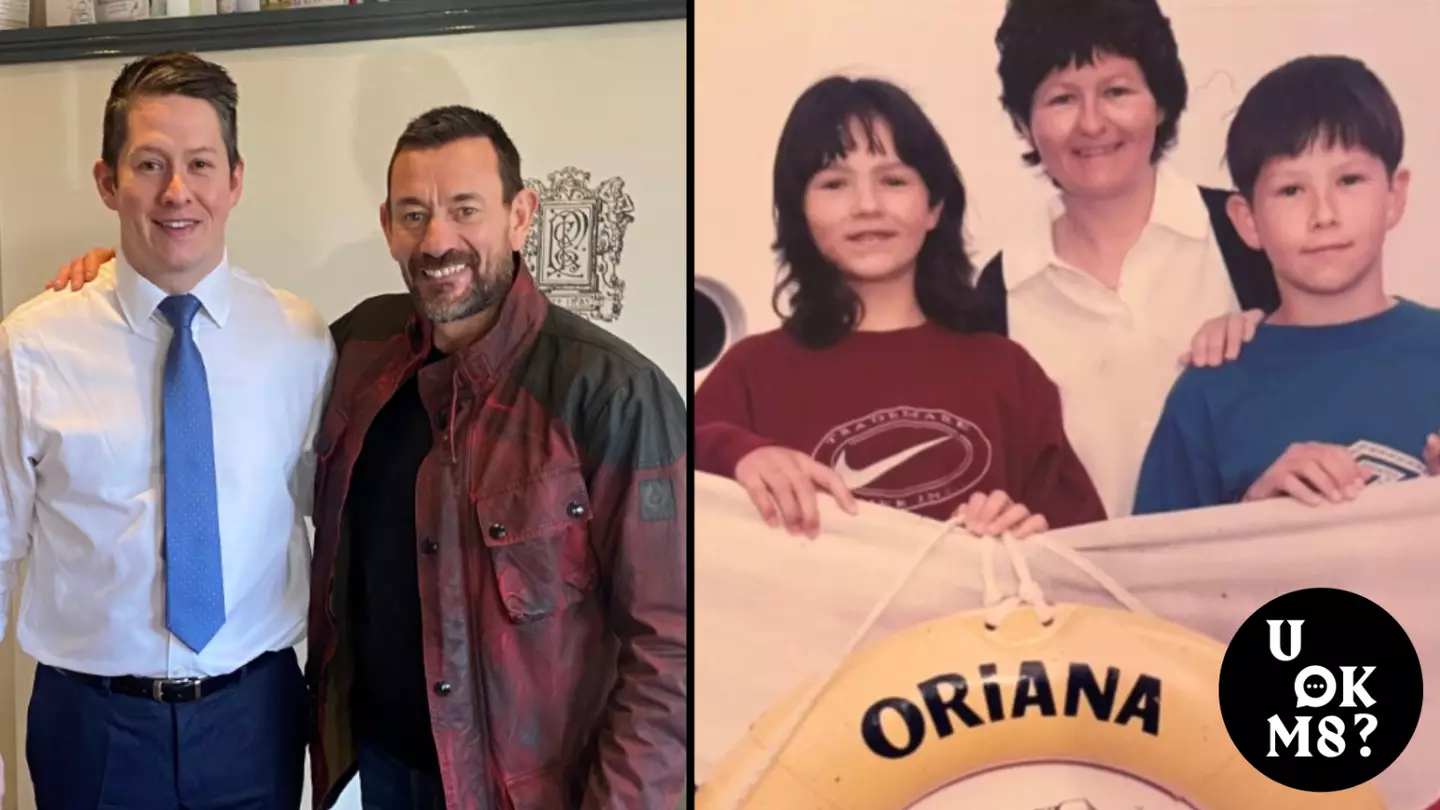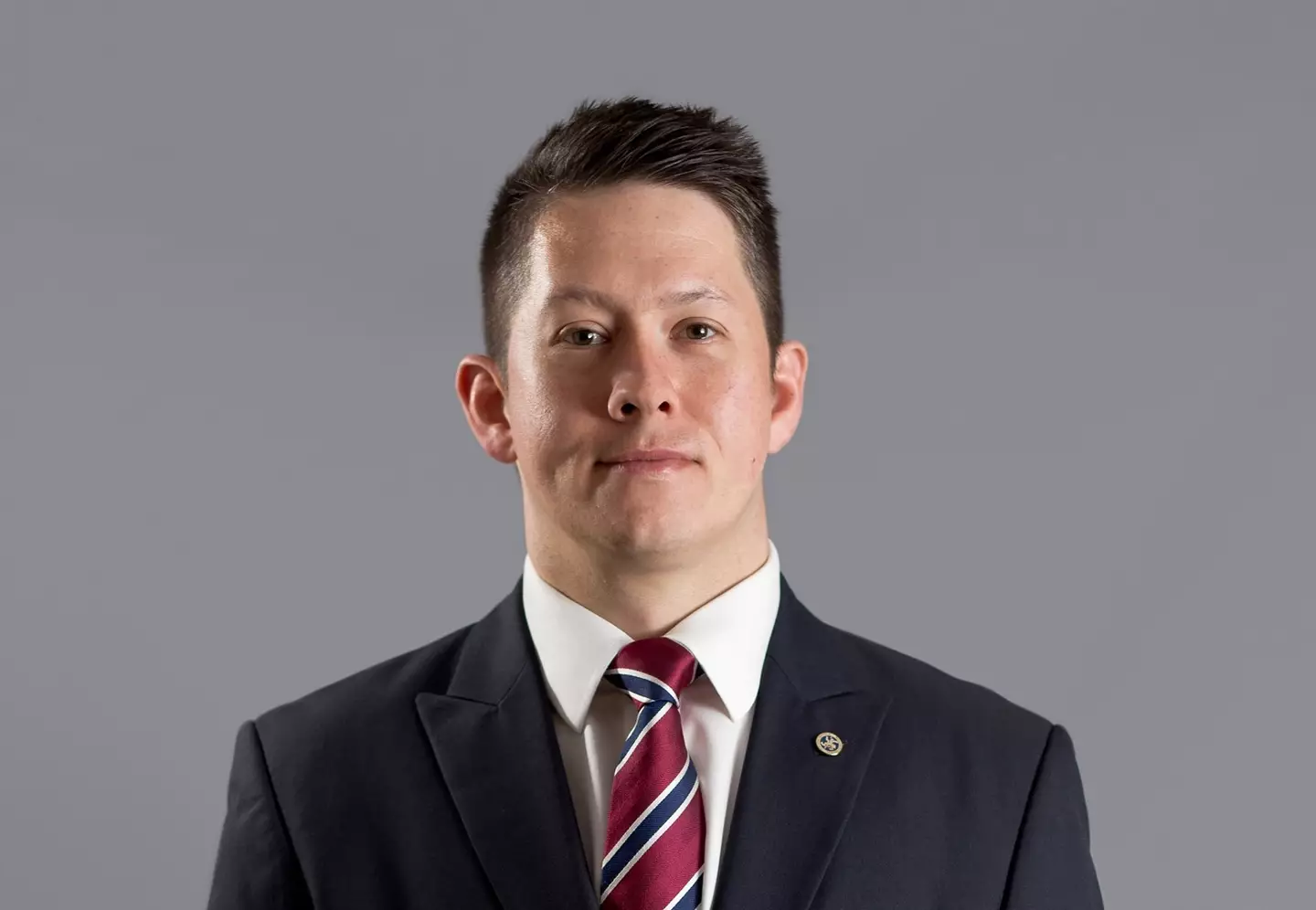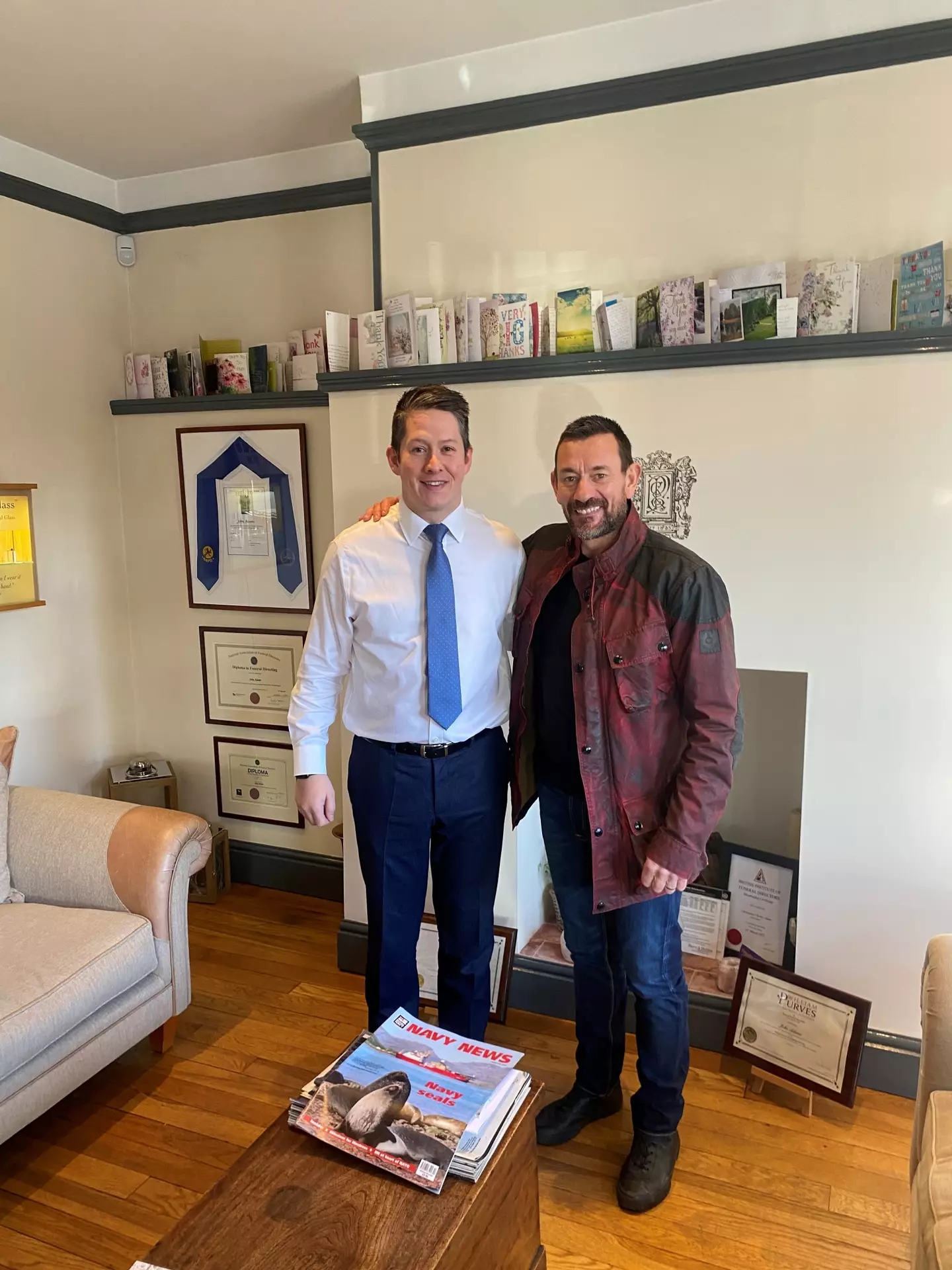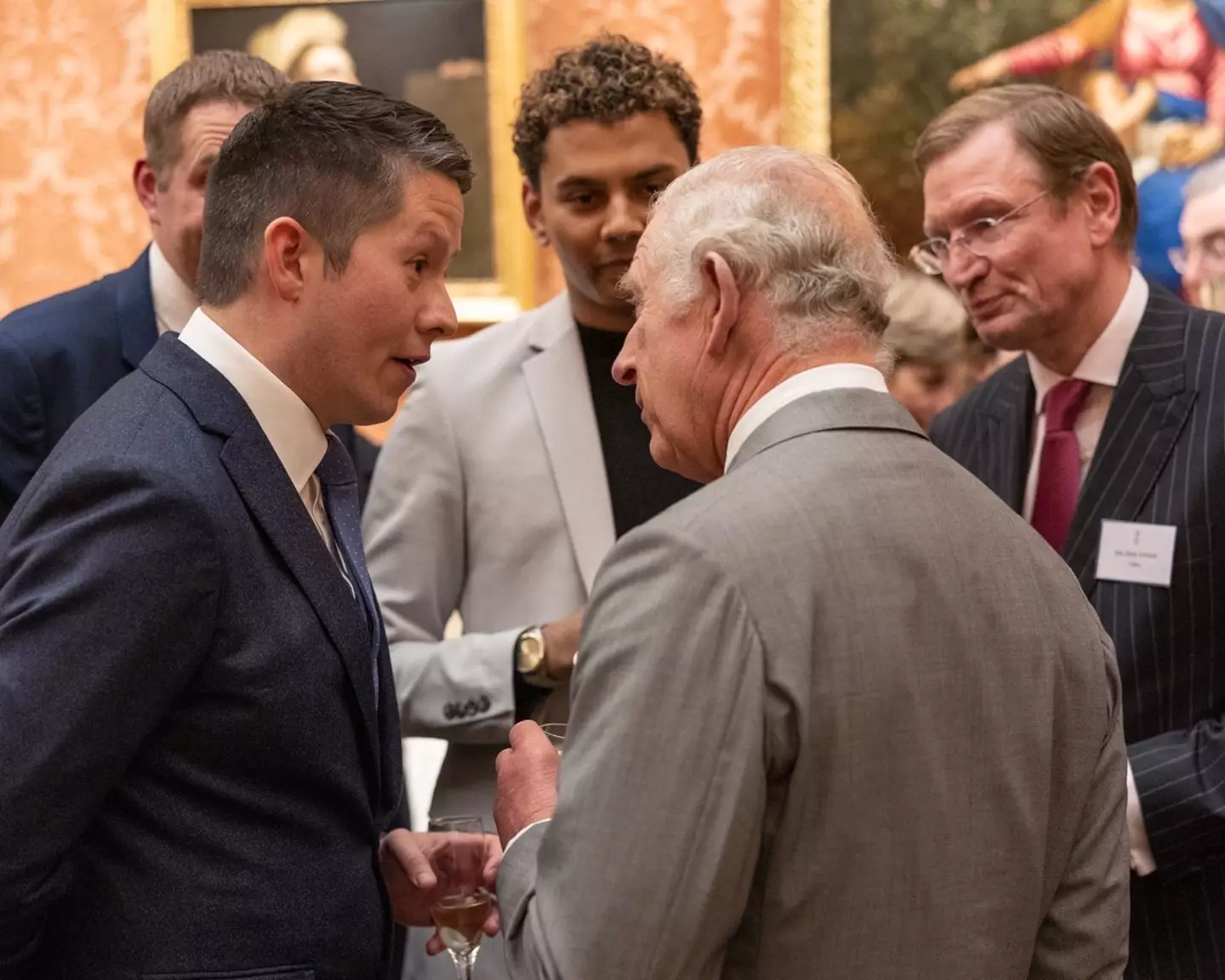
Losing someone close to you is never easy, especially as a child.
But at the age of 12, John Adams experienced the unimaginable when he lost his mum, Maria, to cancer.
Over a six-year period, Maria was diagnosed with ovarian cancer and, at one point, was given the all-clear.
Sadly, the cancer returned, spreading through her body, and she died when she was just 39 years old.
Advert
John, who is now 37, is a funeral director in Bridgnorth.
He is happily married to his wife, Adele, and has two children Jack, five, and Luke, three, with a little girl due in July.
While having a positive outlook on life, overcoming such a loss as a child is something that still lives with him to this day.

"The most difficult thing was waking up in the mornings," the father-of-two tells LADbible.
"And I was almost thinking, 'was that a dream, or is she still here?', spending the initial couple of minutes waking up thinking, 'what's happened, is mum next door or has she actually died?'
"Suddenly, that realisation kicks in the stomach again."
"That was really a sad time and a hard time," John recalls.
"And I was actually with her when she died and I remember whispering in her ear, 'it's okay to go mum, we're going to be okay, I will look after Katie, my sister, and we'll be alright, mum, it's okay for you to go now'.
"And, like, you know, holding her and just being with her, with my family, and that was really special, really hard, really, really hard to do."
John says that being a child when his mum died meant he had a different perspective.
At school, he says 'communication was non-existent' and he would 'try and be out of school as much as possible' because he felt 'embarrassed' for the other kids.
"You know, they had the whole 'mum jokes' in school," he recalls. "And obviously, the guys don't mean it."

After the passing of his mum, John was left to live with his sister and father.
John's dad, who was in the family funeral business at the time, was 'always working', while his sister 'very much just got on with things'.
"My dad was very focused on his work. He's passionate about his work. So he put himself back to work straight away," John explains.
"And my sister very much just got on with things, like quite quiet stuff really.
"I've always been quite expressive, and like, if there was a problem I wanted to talk it through and put it to bed properly kind of thing.
"That's how I like to deal with stuff. But I'd say we're all different, aren't we?"
Maria's death was 'peaceful', according to her son, but it remained 'desperately sad' at the same time.
He was just grateful to be there to say goodbye.
"But as I say, me being there, as hard as it was, it was really important to me," John admits.
"I wanted her to know that it's okay and want to be with her to the end really, and tell her it's okay and to reassure her that we'll all be fine.
"And I think that has probably subconsciously turned into a promise to myself, almost just thinking out loud now, perhaps it's the reason why I'm so determined to help other people because of that.
"The promise I made her. I don't know, it perhaps is, I haven't actually thought about that until just now."

John says bereavement is a sad fact of life and that crying and feeling upset are things we have to 'embrace'.
"I think we need to understand that feeling sad, and crying and having tight tears at these moments is not a bad thing," he says. "We need to embrace them.
"Unfortunately, that's life. We have sad days. So that was a special moment, but very, very hard.
"And it's something that stays with me now."
At the age of 16, John was going to join the family funeral business 'Perry & Phillips Funeral Directors'.
However, he felt he was 'too young to be working at a mortuary' and, instead, joined the Royal Navy when he was 18 and then left at 26.
"I got promoted at quite a young age. And I really enjoyed it. You know, it was fantastic," John recalls.
"And when you're in the navy or military, you learn a lot about yourself, what you're made of."
After coming back home to join the family funeral business, John has worked his way up to a director role, which he has been in for almost a year.
But his journey hasn't stopped there.
The father-of-two - who is also president of the National Association of Funeral Directors (NAFD) - is now using his own experience to help other kids better deal with bereavement.
He successfully secured over 12,000 signatures for his parliamentary petition to 'add content on death, dying and bereavement to the national curriculum'.
And the Department of Education is now going to carry out a 'full public consultation' on the proposal.
John says he wants 'all children to have the opportunity to learn about something so important, which will affect us all'.
He even got to chat with King Charles III about the petition and was invited to Buckingham Palace late last year.

"It was obviously an incredible opportunity to go there and to go up," he says.
"But again, massive honour to talk to him about it.
"He lost his mum, the Queen, only a few months prior to that. And obviously, his children's mother died, Diana. So he knew and he understood, and he was very supportive of it."
If you have experienced a bereavement and would like to speak with someone in confidence, contact Cruse Bereavement Care via their national helpline on 0808 808 1677
If you’ve been affected by any of these issues and want to speak to someone in confidence, contact Macmillan’s Cancer Support Line on 0808 808 00 00, 8am–8pm seven days a week
Topics: Health, UK News, Cancer, Mental Health